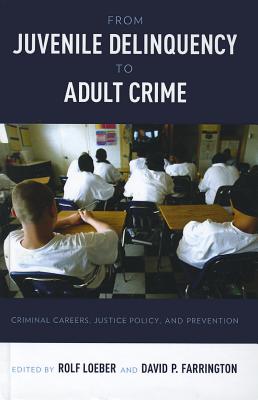From Juvenile Delinquency to Adult Crime: Criminal Careers, Justice Policy, and Prevention
$112.50
Description
What makes a juvenile delinquent develop into an adult criminal? What defines-cognitively, developmentally, legally-the transition from juvenile to adult and what determines whether patterns of criminal behavior persist? In most US states and Western nations, legal adulthood begins at age 18. This volume focuses on the period surrounding that abrupt transition (roughly ages 15-29) and addresses what happens to offending careers during it.
Edited by two leading authorities in the fields of psychology and criminology, Transitions from Juvenile Delinquency to Adult Crime examines why the period of transition is important and how it can be better understood and addressed both inside and outside of the justice system. Bringing together over thirty leading scholars from multiple disciplines in both North America and Europe, this volume asks critical questions about criminal careers and causation, and whether current legal definitions of adulthood accurately reflect actual maturation and development. The volume also addresses the current efficacy of the justice system in addressing juvenile crime and recidivism, why and how juveniles ought to be treated differently from adults, if special legal provisions should be established for young adults, and the effectiveness of crime prevention programs implemented during early childhood and adolescence. With serious scholarly analysis and practical policy proposals, Transitions from Juvenile Delinquency to Adult Crime addresses what can be done to ensure that today’s juvenile delinquents do not become tomorrow’s adult criminals.Editor: Loeber, Rolf, Editor: Farrington, David P
Topic: Psychology
Media: Book
ISBN: 199828164
Language: English
Pages: 399
Additional information
| Weight | 1.55 lbs |
|---|---|
| Dimensions | 9 × 6.2 × 1.2 in |















Reviews
There are no reviews yet.